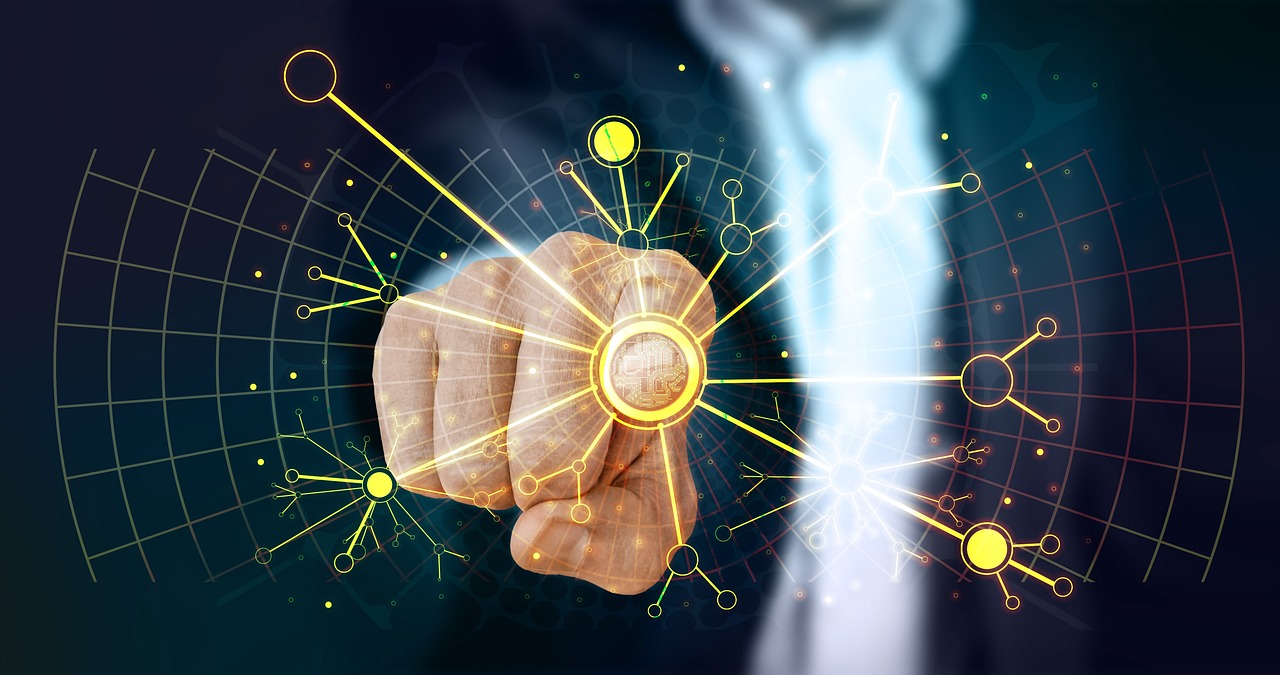Revolutionizing Healthcare: How AI is Transforming the Medical Industry

August 8, 2023
Advancements in technology have significantly impacted various industries, and the healthcare sector is no exception. In recent years, Artificial Intelligence (AI) has emerged as a transformative force in the medical industry, revolutionizing the way healthcare is delivered, diagnosed, and managed. This cutting-edge technology has the potential to reshape the landscape of medicine, bringing about more efficient and personalized healthcare solutions. In this article, we will explore in-depth the ways in which AI is transforming the medical industry and its potential to improve patient outcomes, streamline processes, and ultimately save lives.
Mastering AI: A Beginner’s Guide to Understanding and Utilizing Artificial Intelligence
Early Detection and Diagnosis
Early detection of diseases plays a pivotal role in successful treatment outcomes. AI is proving to be a game-changer in this area. Machine learning algorithms can sift through patient data, including electronic health records, medical imaging results, and genetic information. They can detect subtle patterns and indicators that might be overlooked by human clinicians.
For example, AI algorithms have shown remarkable accuracy in identifying early-stage cancerous lesions in medical images. Moreover, AI can analyze genetic data to identify markers that predispose individuals to certain diseases. It allows for targeted screening and early intervention.
Furthermore, AI-driven diagnostic tools can help healthcare professionals interpret complex data more efficiently and consistently. This not only enhances patient outcomes but also reduces the burden on healthcare facilities by enabling earlier interventions that can prevent disease progression and complications.
Personalized Treatment Plans
AI is transforming medicine from a one-size-fits-all approach to a highly personalized model. By analyzing an individual’s genetic makeup, lifestyle habits, medical history, and even social determinants of health, AI can identify the most effective treatment options tailored to each patient’s specific needs.
Pharmacogenomics, an area where AI excels, enables healthcare providers to predict how a patient will respond to a particular medication based on their genetic profile. This information allows for the selection of the most suitable drugs and dosages. It reduces the risk of adverse reactions and optimizing treatment effectiveness.
Additionally, AI can continuously monitor patient data, adjusting treatment plans in real-time based on changes in a patient’s condition. This dynamic approach to healthcare leads to better patient compliance, improved outcomes, and reduced hospital readmissions.
Predictive Analytics and Preventive Care
The transition from a reactive to a proactive healthcare model is a significant benefit of AI adoption. Through predictive analytics, AI can identify patterns that might signal potential health risks for individuals or populations.
By combining data from wearable devices, electronic health records, and patient-reported outcomes, AI algorithms can assess an individual’s health status continuously. This proactive approach empowers healthcare providers to intervene early, offering personalized preventive measures and lifestyle interventions to mitigate future health risks.
Moreover, AI can predict disease outbreaks and identify at-risk populations, which is invaluable in public health planning and resource allocation. This early warning system enables healthcare systems to prepare for potential surges in demand and allocate resources efficiently.
Enhancing Medical Imaging
AI‘s integration with medical imaging has had a profound impact on diagnostics. Medical images, such as X-rays, MRIs, and CT scans, are essential tools for diagnosing various conditions. However, the interpretation of these images can be time-consuming and prone to human error.
AI-powered image analysis significantly enhances the speed and accuracy of radiological diagnoses. Deep learning algorithms can analyze images in seconds, detecting abnormalities with high precision and consistency. This allows radiologists to focus on complex cases and make more informed decisions, resulting in faster reporting times and reducing patient wait times for results.
Additionally, AI-powered imaging systems can help detect early signs of diseases that may be challenging to spot with the human eye, leading to earlier interventions and improved patient outcomes.
Drug Discovery and Development
The process of drug discovery and development is both time-consuming and expensive. AI is revolutionizing this field by expediting the identification of potential drug candidates and reducing the failure rate in clinical trials.
Using AI-driven algorithms, researchers can analyze vast databases of chemical compounds, biological data, and clinical trial results to predict how certain drugs will interact with the human body. This allows researchers to focus on the most promising candidates, saving time and resources.
Furthermore, AI can identify potential drug repurposing opportunities, where existing medications are used to treat new conditions. This approach can expedite the availability of treatments for diseases with unmet medical needs.
Virtual Health Assistants and Telemedicine
AI-powered virtual health assistants have revolutionized patient interactions with healthcare systems. These virtual assistants, often in the form of chatbots or voice-enabled interfaces, provide patients with instant access to medical information, personalized health advice, and appointment scheduling.
Virtual health assistants can handle routine inquiries, freeing up healthcare providers’ time and resources. This streamlines administrative tasks, allowing medical professionals to focus on direct patient care and complex medical cases.
AI has also played a vital role in advancing telemedicine, particularly in remote or underserved areas. Telemedicine platforms equipped with AI-powered diagnostic tools enable remote consultations and monitoring of patients’ vital signs, fostering better patient-doctor communication and increasing access to healthcare services.
Why Artificial Intelligence Is Dangerous
Bridging Gaps in Healthcare Access
Telemedicine, fueled by AI advancements, has emerged as a transformative solution to bridge geographical and logistical gaps in healthcare access. This technology has revolutionized the way patients receive medical consultations, making quality healthcare services more accessible to individuals in remote or underserved areas. With the widespread adoption of telemedicine, patients can now connect with healthcare professionals from the comfort of their homes, workplaces, or even during travel, eliminating the need for unnecessary trips to healthcare facilities.
Remote Consultations and Diagnostics
AI-driven telemedicine platforms enable patients to have remote consultations with healthcare professionals, facilitating real-time discussions about their health concerns and symptoms. Through virtual health assistants, patients can describe their symptoms and receive initial medical advice, streamlining the process of triage and reducing the burden on emergency rooms and outpatient clinics.
Moreover, telemedicine extends beyond consultations to encompass diagnostics. AI-powered diagnostic tools can analyze patient-reported symptoms and medical history to provide preliminary assessments of potential conditions. These tools assist healthcare providers in making more accurate and informed decisions during remote consultations, enabling them to recommend appropriate treatments or further diagnostic tests.
Remote Monitoring and Chronic Disease Management
AI-enabled remote monitoring plays a vital role in managing chronic diseases and post-operative care. Wearable devices equipped with AI algorithms can continuously track a patient’s vital signs, such as heart rate, blood pressure, and glucose levels. This data is transmitted to healthcare providers in real-time, allowing them to monitor the patient’s health status remotely and intervene promptly if any abnormalities arise.
For patients with chronic conditions, remote monitoring can lead to better disease management, improved treatment adherence, and fewer hospital readmissions. It empowers patients to take an active role in their health, making lifestyle adjustments based on personalized insights provided by AI-driven remote monitoring systems.
AI in Telepathology and Remote Imaging
Telemedicine extends to specialized fields like pathology and radiology through AI-powered applications. Telepathology involves the remote examination of tissue samples, allowing pathologists to diagnose and interpret biopsies from afar. AI algorithms can assist pathologists in analyzing tissue images, identifying abnormal cells, and providing valuable insights to aid in accurate diagnoses.
In the realm of radiology, AI algorithms have demonstrated exceptional performance in analyzing medical images transmitted through telemedicine platforms. By streamlining the transmission of X-rays, CT scans, and MRIs, healthcare providers in remote areas can access expert radiologists’ opinions, reducing the time to obtain critical diagnoses and speeding up treatment initiation.
AI-Enhanced Teleconsultations
AI has enriched teleconsultations by offering language translation capabilities and providing medical decision support. Language barriers can be a significant obstacle to accessing healthcare, especially in multicultural regions. AI-powered language translation tools enable seamless communication between patients and healthcare providers who speak different languages. It ensures that patients receive accurate medical advice and information.
Additionally, AI-driven medical decision support systems can assist healthcare providers during teleconsultations by offering evidence-based treatment recommendations and up-to-date clinical guidelines. This added support enhances the quality of care delivered during virtual consultations. It fosters a collaborative approach between AI technology and healthcare professionals.
Data Security and Privacy
While AI-driven telemedicine offers numerous benefits, it is crucial to address data security and privacy concerns. As telemedicine involves the transmission and storage of sensitive patient information, robust security measures must be in place.
Healthcare organizations and telemedicine platforms must adhere to stringent data protection regulations and implement encryption and authentication protocols to protect patient information. Additionally, AI algorithms used in telemedicine should be designed to prioritize patient privacy. It must ensures that data is anonymized and de-identified whenever possible.
Demystifying AI: Understanding Different Types of Artificial Intelligence
Conclusion
Artificial Intelligence is rapidly transforming the medical industry, revolutionizing the way healthcare is delivered and experienced. From early detection and personalized treatment plans to predictive analytics and drug discovery, AI’s impact on healthcare has been profound. In time, we can expect even more groundbreaking applications of AI in medicine, leading to improved patient outcomes, increased efficiency, and ultimately a healthier world.
However, it is essential to address ethical and privacy concerns and ensure that these technologies are deployed responsibly, keeping patient welfare at the forefront of AI-driven healthcare innovation. Embracing AI as a complementary tool to healthcare professionals will usher in a new era of patient-centered care, where technology and human expertise combine to deliver better health outcomes for all.








